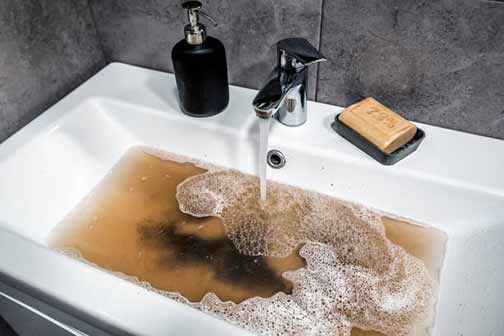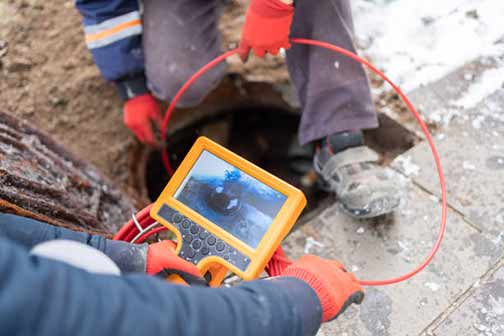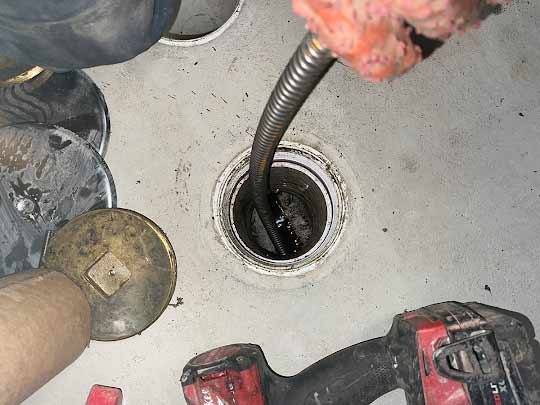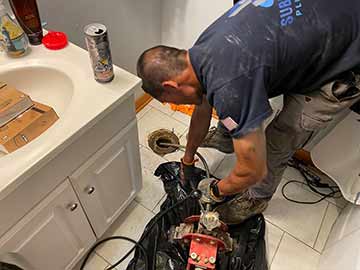
Clogged sewer lines can have a significant and detrimental impact on households in Chicago. These blockages can lead to a range of problems, from minor inconveniences to major health hazards. Understanding the effects of sewer line blockages and learning strategies for minimizing these impacts through proactive care is essential for homeowners in the area.
The Causes of Sewer Line Blockages in Chicago
Sewer line blockages can occur for a variety of reasons. Common causes include the buildup of grease, oil, and other debris in the pipes, tree roots infiltrating the sewer lines, and the accumulation of non-flushable items such as wipes and feminine hygiene products. In Chicago, the city’s aging infrastructure can also contribute to the frequency of sewer line blockages.
Immediate Effects of Clogged Sewer Lines on Households
When a sewer line becomes clogged, the immediate effects can be quite noticeable. Homeowners may experience slow-draining sinks, tubs, and toilets, as well as unpleasant odors emanating from the drains. In more severe cases, sewage backups can occur, leading to water damage and potential health hazards due to exposure to raw sewage.
Long-Term Consequences of Sewer Line Blockages
If left unaddressed, clogged sewer lines can lead to more serious long-term issues. Persistent blockages can cause damage to the sewer pipes themselves, potentially resulting in costly repairs or even the need for complete pipe replacement. Additionally, ongoing exposure to sewage backups can create an unhealthy living environment and increase the risk of mold growth and other health concerns.
Health Risks Associated with Sewer Backups
Sewer backups pose a significant health risk to Chicago households. Raw sewage contains harmful bacteria, viruses, and parasites that can cause a range of illnesses, from gastrointestinal infections to respiratory problems. Homeowners and their families should take immediate action to address sewer backups to minimize their exposure to these health hazards.

Avoiding the disposal of grease, oil, and non-flushable items down the drains.
Strategies for Preventing Sewer Line Blockages
Preventing sewer line blockages requires proactive care and maintenance. Homeowners can take several steps to reduce the risk of clogs, including:
- Avoiding the disposal of grease, oil, and non-flushable items down the drains.
- Regularly cleaning and maintaining drains and sewer lines.
- Installing backflow prevention devices to protect against sewage backups.
- Scheduling regular inspections and maintenance with a professional plumber.
The Role of Professional Plumbers in Sewer Line Maintenance
Professional plumbers play a crucial role in maintaining the health of a household’s sewer lines. They have the expertise and tools necessary to identify and address potential blockages before they become major issues. Regular inspections and maintenance by a professional plumber can help ensure that sewer lines remain clear and functioning properly.
Emergency Response to Sewer Line Blockages
In the event of a sewer line blockage, homeowners should know how to respond quickly and effectively. Immediate steps to take include turning off the water supply to prevent further backups, avoiding the use of plumbing fixtures, and contacting a professional plumber for emergency assistance. Quick action can help minimize the damage and health risks associated with sewer backups.
Insurance Coverage for Sewer Line Damage
Homeowners should be aware of their insurance coverage for sewer line damage. Standard homeowner’s insurance policies may not cover damage resulting from sewer backups, so it is important to review the policy and consider additional coverage options if necessary. Understanding the extent of insurance coverage can help homeowners be better prepared for potential sewer line issues.
Community Efforts to Address Sewer Line Issues in Chicago
Addressing sewer line issues requires a collaborative effort between homeowners, local government, and community organizations. In Chicago, initiatives to upgrade the city’s aging infrastructure, educate residents about proper waste disposal, and provide resources for sewer line maintenance can help reduce the incidence of blockages and improve the overall health of the community.
The Impact of Aging Infrastructure on Sewer Lines
Chicago’s aging infrastructure plays a significant role in the frequency and severity of sewer line blockages. Many of the city’s sewer systems were installed decades ago and are now reaching the end of their useful life. As pipes age, they become more susceptible to cracks, breaks, and blockages. Upgrading these systems is a costly and time-consuming process, but it is essential for reducing the incidence of sewer line issues and ensuring the long-term health of the city’s plumbing infrastructure.

Professional plumbers can use advanced diagnostic tools to assess the condition of sewer lines and recommend necessary repairs or maintenance.
Environmental Consequences of Sewer Line Blockages
Sewer line blockages can have far-reaching environmental consequences. When sewage backs up into homes and streets, it can contaminate local water sources and harm wildlife. Additionally, untreated sewage can contribute to the pollution of rivers and lakes, leading to broader ecological damage. By addressing sewer line blockages promptly and effectively, homeowners and communities can help protect the environment and preserve natural resources for future generations.
Technological Advances in Sewer Line Maintenance
Recent technological advances have made it easier and more efficient to maintain and repair sewer lines. Innovations such as trenchless technology, which allows for the repair or replacement of pipes without extensive digging, can minimize disruption to homes and streets. Additionally, advanced diagnostic tools like video inspection cameras enable plumbers to accurately identify the location and cause of blockages, leading to more targeted and effective repairs. Embracing these technologies can help reduce the impact of sewer line blockages and improve the overall efficiency of sewer line maintenance.
Educating Homeowners on Proper Waste Disposal
One of the most effective ways to prevent sewer line blockages is through education. Homeowners need to be aware of what should and should not be disposed of down the drains. Items such as grease, oil, wipes, and feminine hygiene products should never be flushed or washed down the sink, as they can easily cause blockages. Public awareness campaigns and community workshops can help educate residents on proper waste disposal practices and reduce the likelihood of sewer line issues.
The Importance of Regular Sewer Line Inspections
Regular inspections are a key component of proactive sewer line maintenance. By scheduling routine sewer camera inspections, homeowners can identify potential issues before they become major problems. Professional plumbers can use advanced diagnostic tools to assess the condition of sewer lines and recommend necessary repairs or maintenance. Regular inspections can help extend the life of sewer pipes, reduce the risk of blockages, and prevent costly repairs in the future.
Financial Assistance for Sewer Line Repairs
Sewer line repairs can be expensive, and not all homeowners have the financial resources to cover these costs. Fortunately, there are programs and grants available to help offset the expense of sewer line maintenance and repairs. Local government agencies and community organizations may offer financial assistance to eligible homeowners. Additionally, some insurance policies may provide coverage for sewer line damage. Homeowners should explore these options to ensure they have the necessary support to address sewer line issues promptly.
To Conclude
Clogged sewer lines can have a significant impact on Chicago households, leading to immediate inconveniences. The first step in addressing a clogged sewer line is to identify the cause. This can often be done by inspecting the affected area and looking for any obvious signs of blockage, such as standing water or slow-draining fixtures. If the cause is not immediately apparent, a professional plumber can use specialized tools, such as video inspection cameras, to locate and diagnose the problem.


